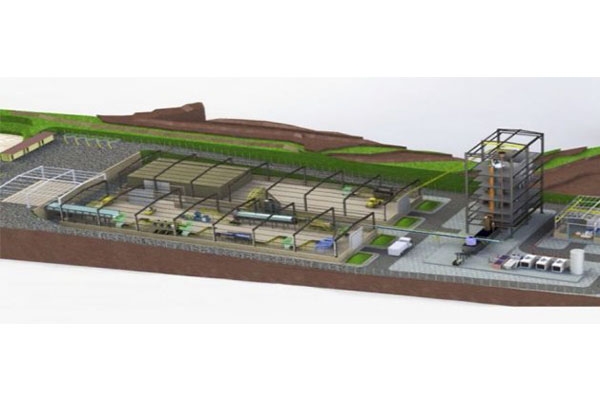Approximately 80 thousand tons of municipal solid waste are incorrectly disposed in Brazil, equivalent to 41.6% of the garbage collected. This serious problem, which has only increased in recent years, has consequences such as floods and pollution. To try to reverse this problem, Furnas Centrais Elétricas, in partnership with Carbogas Energia Ltda., concluded the first phase of a project last month, which aims to generate electric energy from solid waste without incineration. The project will use a 100% national technology, through fluidized bed gasification, and seeks a less polluting alternative for the national and international electric energy generation market. Nélson Araújo dos Santos, research and development manager at Furnas, explained our portal that this is a project that uses gasification technology, which is quite different from incineration.
“The rate of pollutants is very low, it is a technology that we understand that can manage to dispose all solid waste in general and through the gas produced, generate electricity. Waste is now a fuel for our process. ” Nélson added that the process has already been validated at its first phase using the pilot plant from Carbogas Energia, and will now go to a larger scale, with industrial volumes, approaching a real model, with all the dynamics from waste collection and disposal.
The tests took place at the Carbogas experimental plant in Mauá city, at the metropolitan region of São Paulo, and prove the viability of this new technology and that the emission rates are in accordance with the standards established in Europe.
However, to make this possible, the initiative used a thermochemical process to produce combustible gases that will be applied in boilers and steam turbines, so that electricity can be generated without the emission of polluting gases that are harmful to the environment.
Second stage of the project
This project have already stared its second stage, with the construction of an industrial plant, in Boa Esperança city, located around Furnas reservoir. The site will have an area of 7,800 m² and the capacity to process 47 tons of garbage per day and generate 1 MWh of energy (about 8 thousand megawatt hours per year).
The creation of this plant will have an investment of R$ 32 million, which will come from the research and development program of Furnas Centrais Elétricas, regulated by the National Electric Energy Agency. The goal is to finish this project and start operating within 18 months.
Ricardo Marques, manager of Research, Services and Technological Innovation at Furnas explained that even though that this plant has the capacity to supply a city of around 40 thousand inhabitants, there is nothing to prevent this technology from being implemented in more populous locations. In addition, he pointed out: “This is a new market niche that contributes to the solution of a socio-environmental problem regarding solid waste disposal, which almost all city halls deal with. Initial estimates shows that up to 25% of the electricity needed for residential use can be supplied by the energy produced with urban solid waste”.
Fonte: https://cetesb.sp.gov.br/ / Pensamento Verde / Secretaria de Energia e Mineração > Notícias
